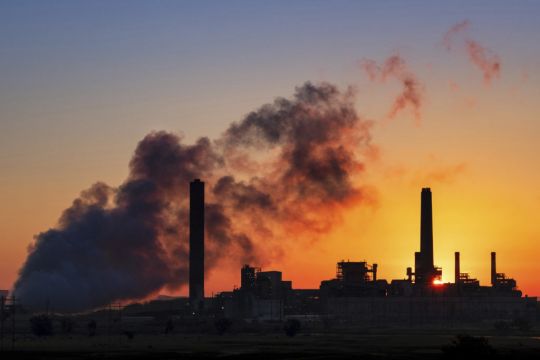Ireland saw the largest decrease in its greenhouse gas emissions in almost a decade last year, according to the Environmental Protection Agency (EPA).
Emissions decreased by 4.5 per cent in 2019 compared to 2018 in the largest annual reduction since 2011, according to the EPA’s provisional 2019 emissions report.
However, despite the decrease, the EPA has warned that Ireland is still not on the pathway required to meet future emissions targets and achieve a climate neutral economy.
The EPA said “significant” emission reductions were recorded within the energy industries, residential and agriculture sectors, driven by a decrease in the use of coal, peat and fertiliser.
If the 2020s are to be the decade of climate action, this level of emission reductions... will be required annually
“This much-needed reduction in greenhouse gas emissions is a welcome step in the right direction,” Laura Burke, Director General of the EPA said.
“However, if the 2020s are to be the decade of climate action, this level of emission reductions, at a minimum, will be required annually.
“Therefore, these reductions need to be built on to achieve continual, substantial, year-on-year emissions reductions. It will take the implementation of effective measures, including all those committed to in the Climate Action Plan, to put Ireland on the pathway to a climate neutral future.”
Plateaued
The decrease in emissions in 2019 was driven by a “significant” reduction in coal (69%) and peat (8%) use in electricity generation, with the overall emissions of energy industries decreasing by 11 per cent.
Electricity generated from wind increased by 16 per cent in 2019, with renewables accounting for 37.6 per cent of electricity generated.
Residential emissions also reduced by 7.3 per cent, largely the result of a warmer winter. However, the EPA said emissions per household have “plateaued” in recent years, indicating a need to “step up” energy efficiency retrofit activity.
Agriculture emissions reduced by 3.9 per cent, driven by decreased fertiliser and lime use on soils. However, the EPA warned that “other key drivers of emissions in agriculture, such as the number of dairy cows, continued to rise.”
A ‘green’ recovery offers the opportunity to respond to climate change while rebuilding our economy
Greenhouse gas emissions from the transport sector reduced only marginally by 0.3 per cent, with an increase in biofuel use offset by an increased demand for transport.
The EPA said the emissions reductions seen came despite modest growth in the domestic economy of 1.7 per cent over the year.
However, it added the figures indicate that Ireland will exceed its 2019 annual EU emissions allocation by 6.98 metric tons, which makes it highly unlikely to meet its overall 2020 targets despite the impact of Covid-19 on emissions.

“These 2019 figures illustrate where our economy and emissions were heading before the Covid-19 pandemic,” Stephen Treacy, Senior Manager at the EPA said.
“While, 2020 is likely to see a reduction in emissions caused by the impact of the pandemic, this does not negate the need for long term and sustained action.
“Focusing on climate action as part of a ‘green’ recovery offers the opportunity to respond to climate change while rebuilding our economy and generating new jobs.”
Full detail on the Greenhouse Gas Emission Inventory 1990 to 2019 is available on the EPA website.







